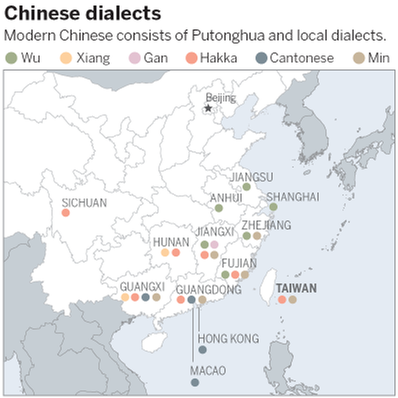Putonghua push puts local dialect in spotlight


A blank sheet
"The land was like a blank sheet of paper when the government officials reoccupied it," Wang said.
He added that the officials and their descendants constituted the original residents of modern-day Luanping, who were ordered to speak Classical Chinese, the language promoted during the early period of Qing rule, and was the predecessor of modern Mandarin and, subsequently, Putonghua.

According to Wang, Classical Chinese, rather than the dialect spoken by the natives of Beijing, was handed down through the generations in Luanping.
"It (the local dialect) has profound historical origins. That's why Luanping natives speak the old standard official language, which was the predecessor of Putonghua," he said.
Although, the Luanping dialect is similar to Putonghua, it is not identical because standards for the old official language were revised several times following the fall of the Qing in 1911.
"The pronunciation of a number of words is different," Wang said, adding that, even so, the language spoken by Luanping residents easily meets the national standard for spoken Putonghua.
However, the same cannot be said for all residents of modern Beijing, he said.
The Beijing dialect does not equate to standard Putonghua because its predecessor lost many elements endemic to classic Beijing speech.
Those elements include the heavily rolled "r" that is added to many words that officially end in "n", a characteristic known as erhuayin, according to Wang.
"However, modern Beijing is a melting pot where different kinds of spoken language gradually get mixed together," he said.
"That's why the Luanping dialect probably sounds closer to standard Putonghua than regular Beijing speech, which is why we call Luanping 'the home of Putonghua'."
- Chinese revel in culture, tourism feast during holiday
- World leaders extend congratulations on PRC's 75th founding anniversary
- Ethnic vloggers popularize highs and lows of rural life
- 2 killed as typhoon lands in Taiwan
- China-built supply chains to benefit all
- Condolences given after Taiwan hospital fire





































